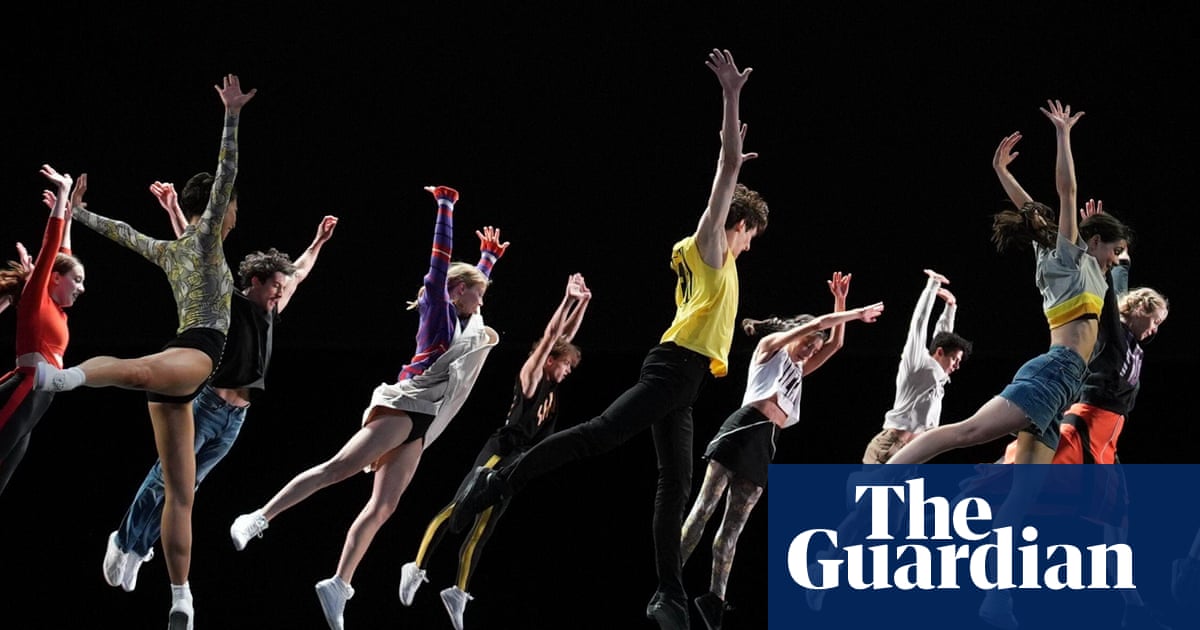Ballet dancers at a top German company have reportedly written an excoriating critique of their new artistic director, accusing him of creating a “toxic work environment.”
More than half of the 63 dancers making up the troupe have complained of untenable working conditions under Hamburg Ballet’s artistic director, Demis Volpi, who joined the company last September, taking over from the US choreographer John Neumeier.
Neumeier, who retired last year at the age of 86 after 51 years in the role, is credited with having taken the German company from relative obscurity to a position of world renown in the dance world.
But the mood at the company is now restive, according to a letter written last month to Hamburg’s minister of culture, Carsten Brosda, and seen by reputable German media.
Five of its 11 first soloists, considered the stars of the ensemble, have announced their resignation, and are due to leave the company at the end of the current season.
Both collectively and individually, they have complained of Volpi’s lack of leadership and artistic expertise, and the “deep mistrust that [he] has towards his employees”.
“The current leadership is creating increasing internal problems and a toxic working environment through poor communication, a lack of transparency and an often dismissive attitude,” the letter reads.
The criticisms have been echoed by dancers from the company Ballett am Rhein in Düsseldorf, where Volpi was at the helm for four years. They say they were moved by their counterparts in Hamburg to open up about their own similar experiences with him.
In a letter also addressed to Brosda, 17 Rhein dancers wrote: “During his time with us, we found that Mr Volpi created a work environment characterised by inconsistent communication, a lack of transparency, and an atmosphere of fear and uncertainty.
“Constructive feedback was often met with negative consequences, which made open exchange difficult and undermined trust.”
The dancers warn in the letter: “It is only a matter of time until not only John Neumeier’s legacy will be lost, but also the high standard and the international reputation that the company enjoys.”
Hamburg’s first soloist, Alexandr Trusch, who came to the company aged 12, after moving to Hamburg from Ukraine, said he was “abandoning everything” by leaving after 23 years because he could not tolerate the existing situation.
“I’m giving up everything, my career, my work, because I can’t support such behaviour and such a low level of artistry which is in danger of destroying everything,” he told broadcaster NDR, saying he did not have a new post in place. He accused Volpi of being someone who “is very good at selling his visions, but the quality he delivers is abysmal”.
The other soloists to have announced their departure are Madoka Sugai, Jacopo Bellussi, Christopher Evans and Alessandro Frola.
Sugai, 30, from Atsugi City, Japan, confirmed in an interview with Die Zeit that her departure was related to Volpi’s style of leadership.
Evans, 30, from Loveland, Colorado, who was the first soloist to announce his resignation, told the newspaper: “I don’t feel like Volpi understands us or has any idea how much work we put in and how much passion we put into our work.”
Volpi, 39, who is German-Argentinian, denied the accusations in an interview last week with theHamburger Abendblatt. More recently, he told the Rheinische Post: “Intensive discussions are possible and are taking place right now.”
He told Die Zeit he would like to respond to the dancers’ letter, but said they had yet to send it to him.
“I don’t have the letter,” he said, adding that he was “willing to work on things”, but for that to happen “the criticism must be brought to my attention”.
A coach “who specialises in processes of change” in the field of the performing arts had been appointed at the ballet, Volpi said, whose job would be to mediate between the parties.
Volpi was approached by the Guardian for comment through the Hamburg Ballet. Requests for information to the company have been directed to Brosda.
In a written statement, Brosda said: “We take the accusations very seriously and are carrying out lots of discussions behind the scenes. The management and the company must now quickly find solutions together to prevent further damage to everyone.”
Meanwhile, the company is continuing to rehearse for the first ballet production choreographed by Volpi for Hamburg in July, an adaptation of the Hermann Hesse novel Demian, a coming-of-age tale that investigates the themes of identity and morality.Dancecritics are expected to be paying far more attention than usual.
